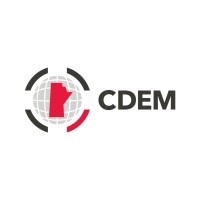
Co-op Students Hiring Incentive
At a glance
- Maximum amount : 5,000 $
- Up to 15% of project cost
- Open Date : January 1, 2003
- All industries
- Winnipeg
- For-profit business
- Sole proprietorship
- All revenue ranges
- All organization sizes
- Youth (<40)
Overview
Employers can claim 15% of wages and salaries, up to a maximum of $5,000 per student.
Activities funded
The Co-op Students Hiring Incentive is focused on providing practical work experience for students engaged in registered co-operative education programs. It supports various co-op placements that enhance learning and employability skills in real-world environments.
- Co-operative education placements for students at registered educational institutions.
Eligibility
Eligibility for the Paid Work Experience Tax Credits requires companies to meet specific criteria related to their corporate status and hiring practices.
- The company must be a taxable corporation or an exempt corporate entity.
- Crown corporations and other provincial government entities are not eligible for the tax credit for the 2017 and subsequent tax years.
- Unincorporated employers can claim the refundable credit on their individual income tax return.
- The company must employ students or graduates from registered co-operative education programs in Manitoba.
Who is eligible?
Eligible employers include taxable corporations or exempt corporate entities. Unincorporated employers may also claim the refundable credit on their individual income tax return. For the 2017 and subsequent tax years, Crown corporations and other provincial government entities are not eligible for this credit.Who is not eligible
The grant program for Paid Work Experience Tax Credits defines certain exclusions in terms of which types of organizations can claim the credit. This is primarily related to their organizational status.
- Crown corporations and other provincial government entities are not eligible for this credit.
Eligible expenses
The eligible activities for this grant focus on providing work experience and employment opportunities for students and graduates through co-operative education programs. These incentives are designed to help students gain practical experience and connect graduates to relevant employment sectors.
- Hiring students for co-operative education work placements in registered programs.
- Employing graduates from co-operative education programs in full-time positions related to their field of study.
Eligible geographic areas
This grant is provided by the Manitoba government and is likely aimed at companies operating within the province of Manitoba. It helps employers create work experience opportunities for students in Manitoba's registered co-operative education programs.
- Businesses and eligible entities based in the province of Manitoba.
Selection criteria
The evaluation and selection criteria for the Co-op Students Hiring Incentive and Co-op Graduates Hiring Incentive in Manitoba are primarily based on the following factors:
- Employers must hire students or graduates from registered co-operative education programs.
- The incentives are applicable for tax years ending after 2015.
- Employers can claim 15% of wages and salaries, up to a maximum of $5,000 per student.
- Approved co-operative education programs must be utilized for eligibility.
- Crown corporations and provincial government entities are not eligible.
How to apply
Review Eligibility Requirements
- Ensure your organization is a taxable corporation or an exempt corporate entity, as Crown corporations and other provincial government entities are not eligible.
- Verify that the student or graduate is part of a registered co-operative education program in Manitoba.
Register or Consult the Manitoba Co-operative Education Program Registry
- Access the Manitoba Co-operative Education Program Registry to find approved programs.
- Ensure your program is listed if applicable.
Complete the Co-op Program Approval Application Form
- Download and fill out the Co-op Program Approval Application Form.
- Include information about your organization and the co-operative education program.
Submit Application Form
- Send the completed form to the appropriate address or email provided by the Manitoba Co-operative Education Programs for approval.
- Confirm submission with the appropriate governmental department.
Contact for Further Assistance
- If further information is needed, contact the Post-Secondary Institutions Branch at the Advanced Education Division.
- Reach out to Manitoba Finance, Manitoba Tax Assistance Office for queries about claiming the tax credit.
Additional information
Here are additional relevant details for the Paid Work Experience Tax Credits program:
- Both COS-HI and COG-HI tax credits are fully refundable, allowing for a direct financial benefit without affecting net income if other tax liabilities are low.
- The Co-op Students Hiring Incentive allows a claim on 15% of wages and salaries paid to co-op students.
- The Co-op Graduates Hiring Incentive also permits a claim on 15% of wages and salaries but is applicable after the student's graduation.
- For both incentives, there is a maximum limit of $5,000 of credit per student or graduate.
- Unincorporated employers can claim the credit on their individual income tax return.
- It is necessary to consult the Manitoba Co-operative Education Program Registry to identify approved programs for eligibility.
Contacts
Frequently Asked Questions about the Co-op Students Hiring Incentive Program
What is the Co-op Students Hiring Incentive?
How much funding can be received?
Who is eligible for the Co-op Students Hiring Incentive program?
What expenses are eligible under Co-op Students Hiring Incentive?
Who can I contact for more information about the Co-op Students Hiring Incentive?
Where is the Co-op Students Hiring Incentive available?
Is the Co-op Students Hiring Incentive a grant, loan, or tax credit?
More programs like this

Workforce Training and Employment — Employment Partnerships
Government of Manitoba
Co-op Graduates Hiring Incentive
Government of Manitoba
Workforce Development Program
Government of Manitoba
Industry Expansion Program
Government of Manitoba
Manitoba — Interactive Digital Media Tax Credit
Government of Manitoba
Workforce Training and Employment — Labour Market Partnerships
Government of Manitoba
Workforce Training and Employment — Self Employment
Government of Manitoba
Sector Council Program
Government of Manitoba
Manitoba Book Publishing Tax Credit
Government of Manitoba